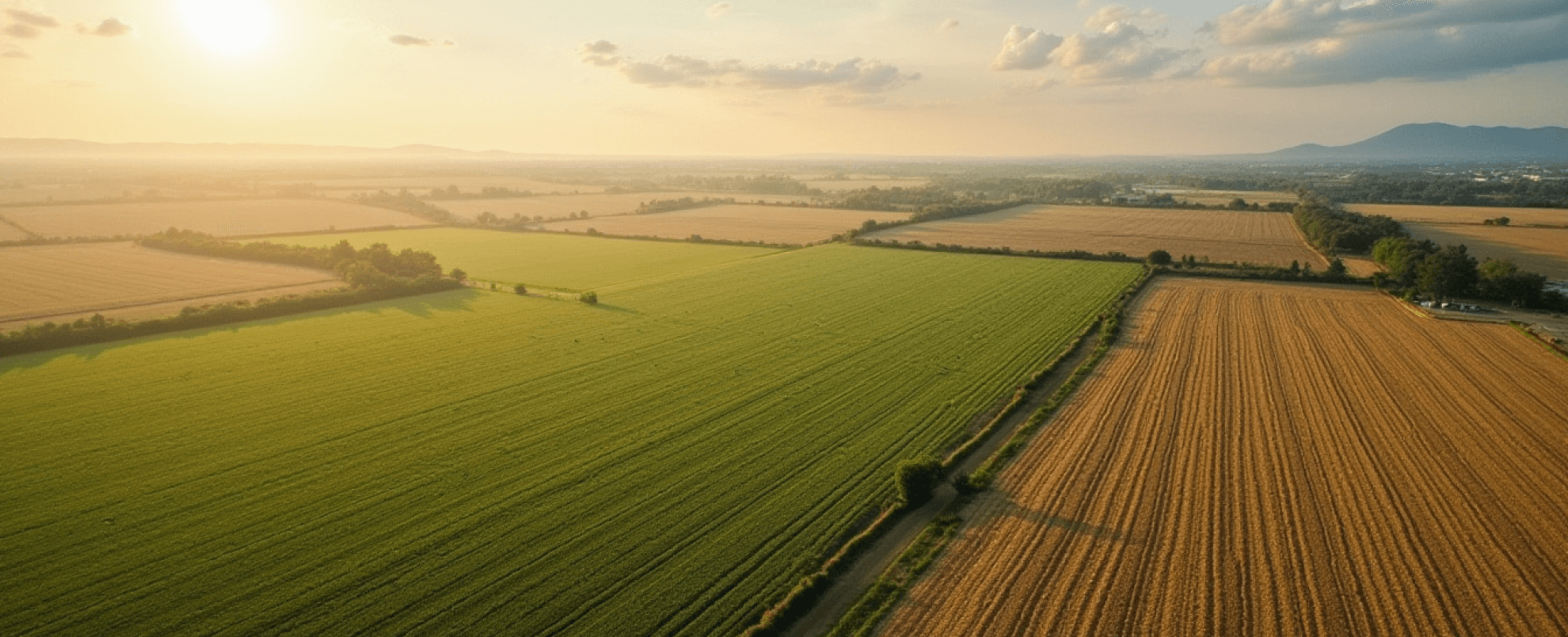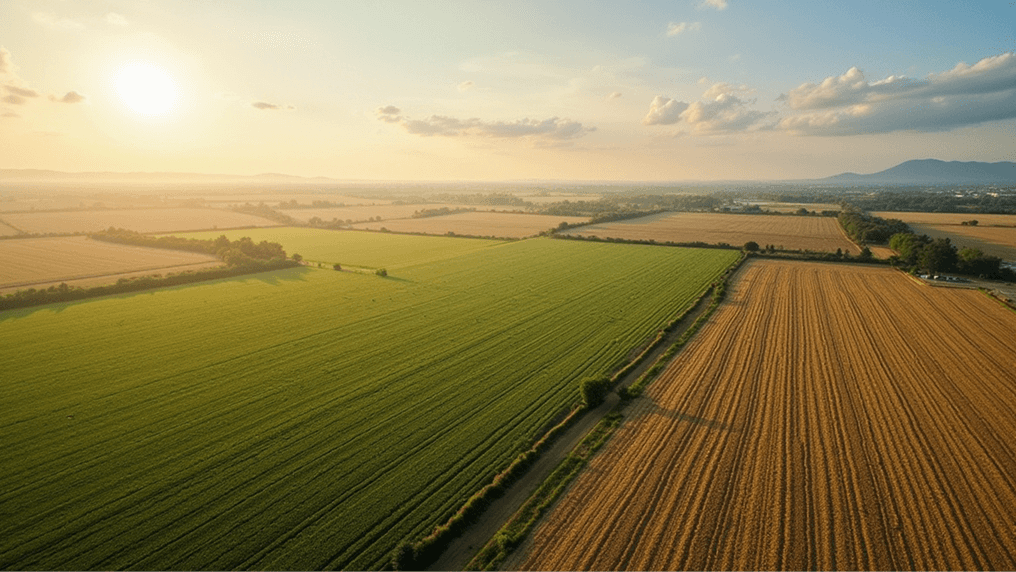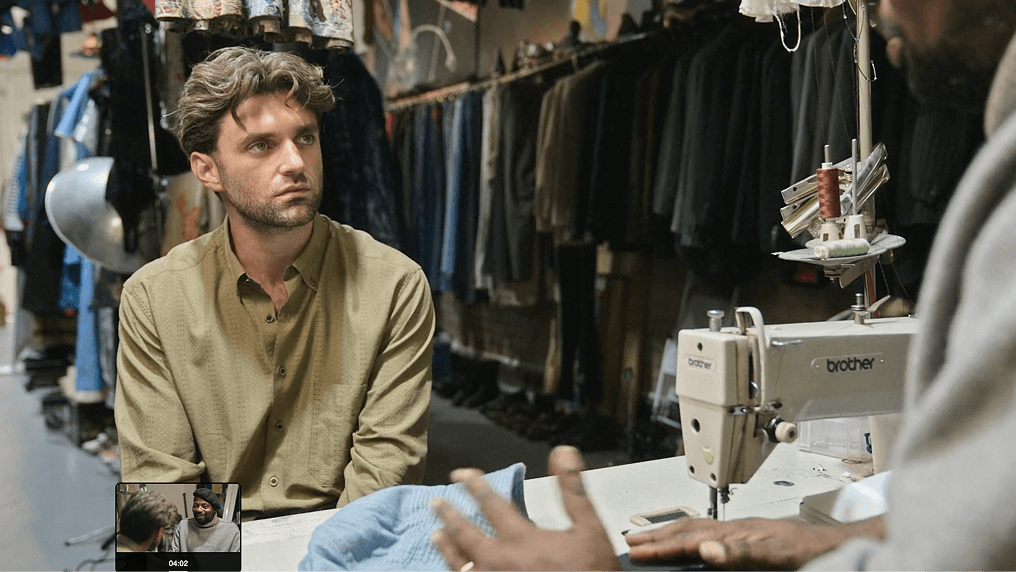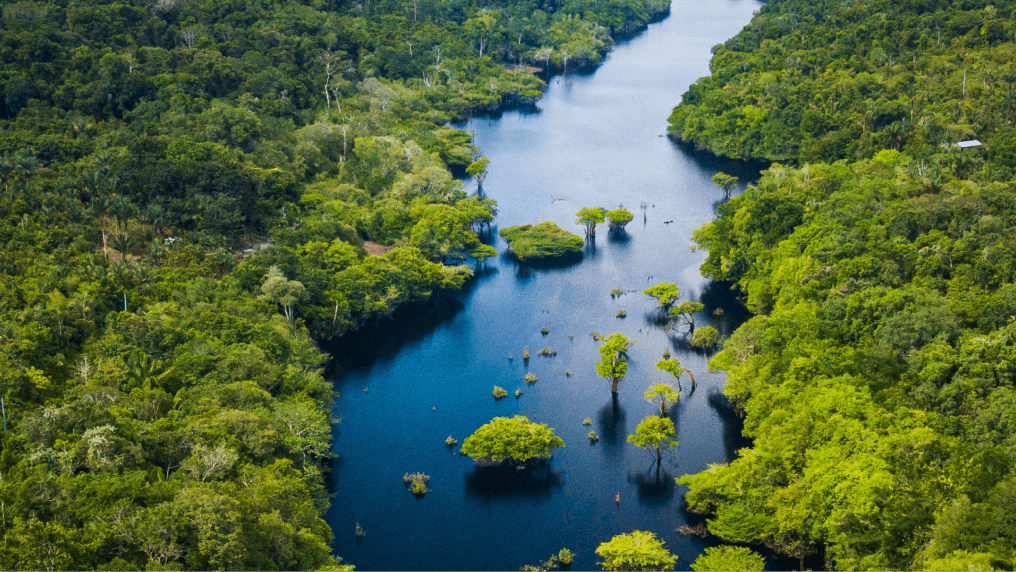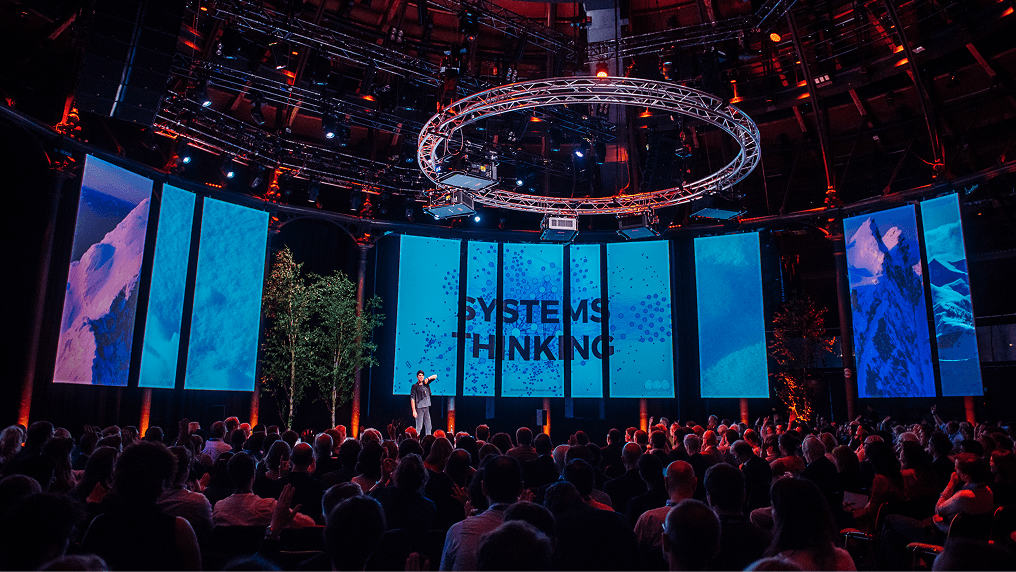This is part of a series of impact stories highlighted in our 2024 Impact Report. To explore more impact stories, see the full collection.
In 2024, we moved into the second year of the Big Food Redesign Challenge, collaborating with the food industry to show that applying circular design principles to food can regenerate nature and benefit customers, farmers, and the climate. Now in the production phase, more than 140 products are being made across a range of countries and product types. The coming year will see these products widely promoted and available to buy in major retailers across the globe.
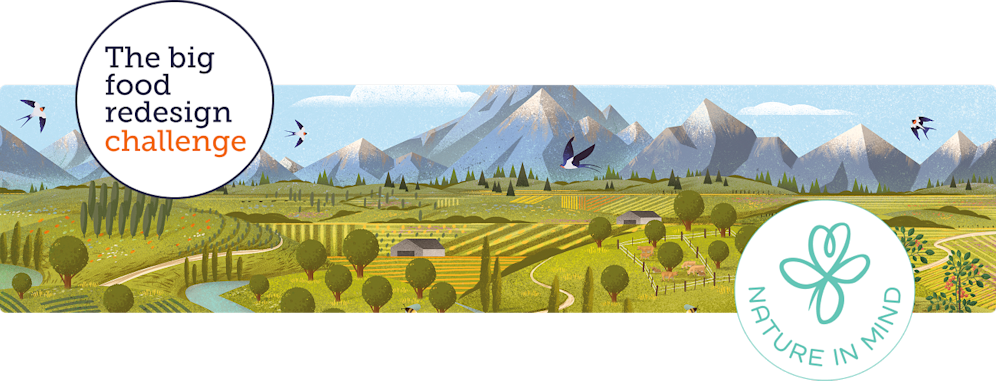
This is the beginning of change across the sector. Even before the products hit the shelves, the wider impact of the Challenge is being felt. Global organisations like One Planet Business for Biodiversity (OP2B), the European Institute of Innovation & Technology (EIT) Food, and the Centre for Circular EconomyCircular EconomyA systems solution framework that tackles global challenges like climate change, biodiversity loss, waste, and pollution. It is based on three principles, driven by design: eliminate waste and pollution, circulate products and materials (at their highest value), and regenerate nature. in Coffee have begun applying insights from our framework, recognising the role of food design in transforming food systems and driving meaningful change.
30% of global greenhouse gas (GHG) emissions come from our food system
It has also attracted the attention of local actors, who see that its application in policy could drive transformative change across degraded landscapes. For example, the Sustainable Food Lab and the Midwest Row Crop Collective believe the framework could drive the adoption of more regenerative practices in the corn and soy farming areas in the USA. In Latin America, the challenge also inspired a proposal on circular food design and combating food waste, which is currently being considered by the Brazilian Government as part of its circular economy strategy.
Our journey towards a food system with nature in mind


Case study
Spoon Cereals: A stepping stone to bigger and braver things
Spoon Cereals aims to shake up the breakfast market with its Super Oats Porridge: a product that has moved from the seed of an idea to a supermarket shelf as a result of the Big Food Redesign Challenge.
Designed in line with our Circular Design for Food Framework, the final product incorporates UK-grown organic and upcycled oats – a byproduct of the oat milk industry – not only supporting closer links with farmer suppliers but also reducing waste. The Challenge played a key role in supporting Spoon, bringing nature's needs into the heart of their new product development processes. The overall sustainability score for the porridge out-performs the norm for breakfast cereals by 22%, with notable improvements in biodiversity and soil health.
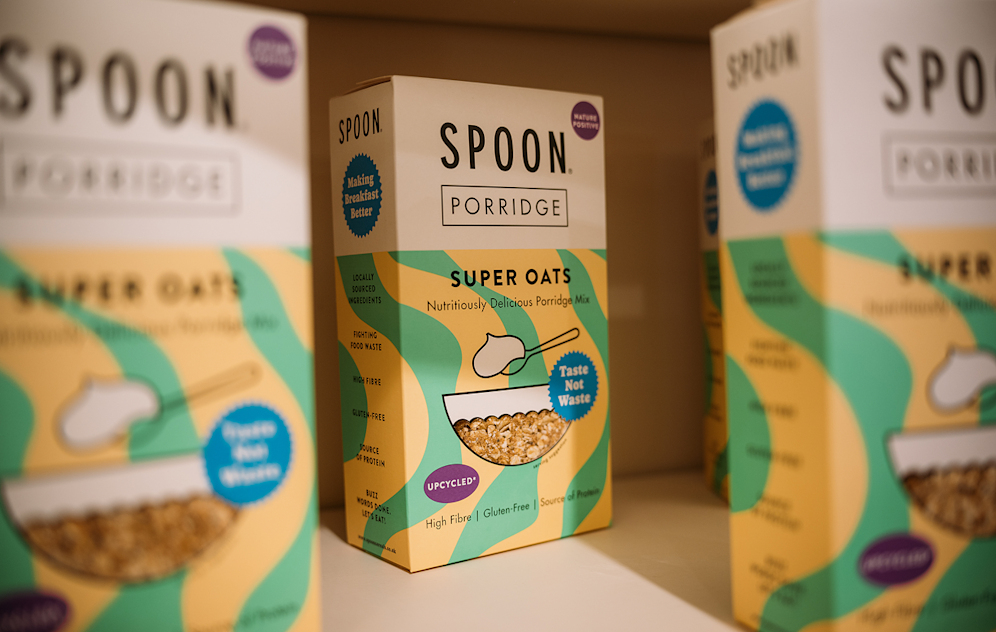
The Challenge also provided access to consumer testing, learning, and networking webinars, enabling the company to gain the insights and confidence to scale its nature-positive vision. Under the Challenge's ‘Nature in mind’ branding, the product has now been launched in 22 UK supermarket stores. Spoon’s story is featured in our Behind the Scenes series of Food Challenge vlogs.
"Taking part in the Big Food Redesign challenge has given us not only the tools to bring our product to market, but also a great deal of education surrounding the topic of circular food systems. It's been a stepping stone to bigger, braver things"
Annie Morris - Co-Founder
In this collection
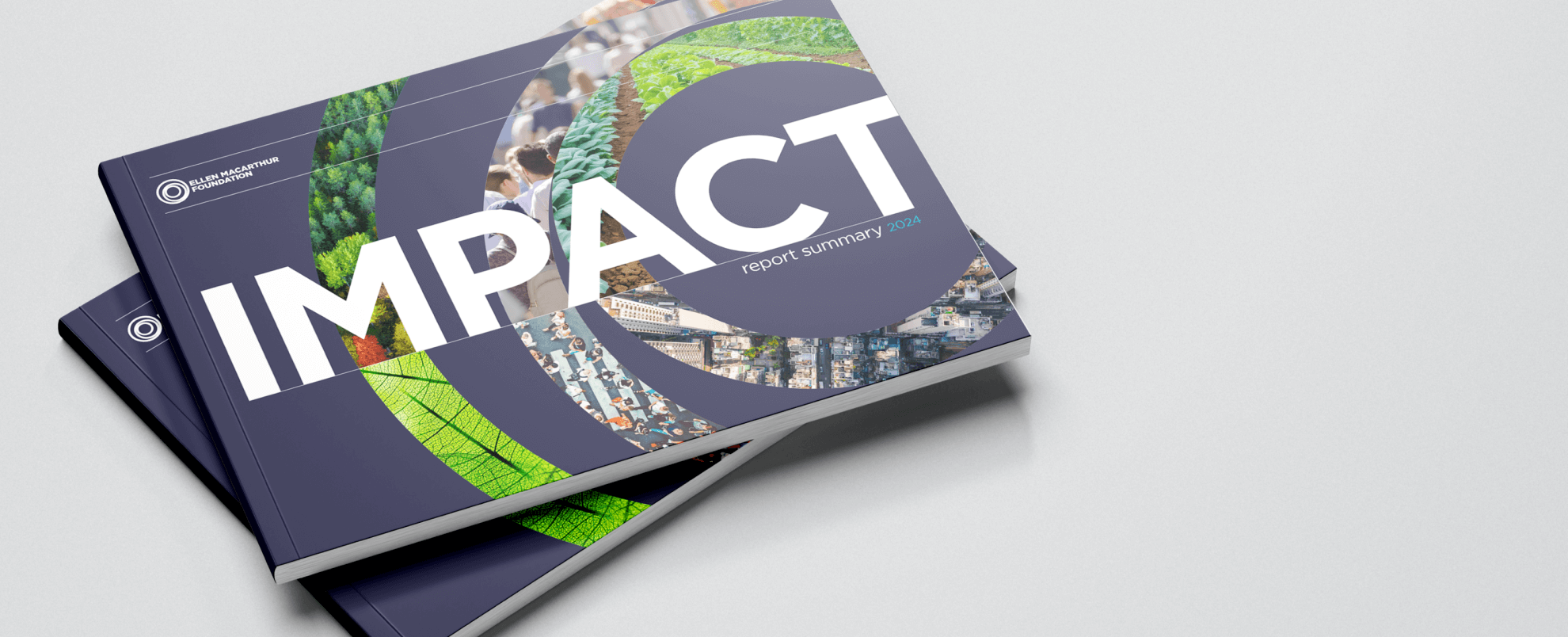
Breaking new ground
The Ellen MacArthur Foundation's Impact Report Summary 2024
We are a leading global organisation committed to transforming the economy so that it works for people and the environment.
